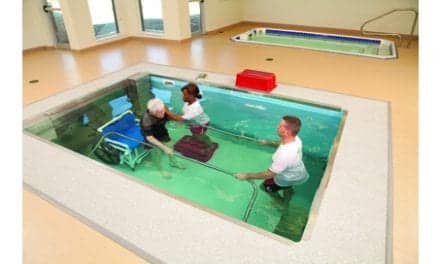.png)
The retrospective study reportedly encompassed 116 consecutive patients. According to researchers, more than 29% of the study participants had sustained blunt trauma and more than 70% had sustained blast injuries. The results indicate that 97% of patients reported sleep complaints. Hypersomnia and sleep fragmentation were also reported in 85% of patients and 54%, respectively. Researchers add that obstructive sleep apnea syndrome (OSA) was diagnosed in 34% of patients and 55% of patients exhibited insomnia. The study notes that patients with blast injuries developed more anxiety, while patients with blunt trauma exhibited significantly more OSA. The results also suggest that in multivariate analysis, blunt trauma was a significant predictor of OSA.
Researchers conclude that sleep disturbances may be influenced by mechanism of injury in those with combat-related traumatic brain injury, with blunt injury potentially predicting the development of OSAS.
The study appears in the journal CHEST.
Source: CHEST




